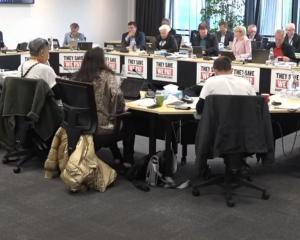

In this case the correspondence is actually evidence relating to the law around waka jumping.
The point of our laws in general is to provide written rules for all to follow, much as tikanga provides in an oral tradition.
The laws governing New Zealand are presided over by the courts. All members of Parliament, including the Speaker, agree to accept the laws of New Zealand.
Parliament’s rules are presided over by the Speaker of the House through Standing Orders. That is the extent of the powers of the Speaker. It is not the role of the Speaker to decide about the laws of New Zealand.
The law around the waka jumping legislation is clear. It is contained in Section 55B of the Electoral Integrity Act.
To trigger a vacancy in a seat in Parliament an MP sends a notice addressed to the Speaker in writing notifying the Speaker that she/he has resigned from the parliamentary membership of the party for which she/he was elected. The notice must be signed.
In this context the Speaker is merely a letterbox: there is no ruling to be made. The role of the Speaker is limited to advising Parliament that the seat has been vacated.
The rules about the seat being vacated are laws of the land, not rulings about how Parliament conducts itself.
Recently the then Minister Whaitiri said "This morning I have officially notified the Speaker that I have resigned from the Labour Party and I am joining Te Pāti Māori".
The Speaker, Adrian Rurawhe, made a ruling under his parliamentary mandate of overseeing the workings of Parliament, that he now considered Meka Whaitiri to be an independent member of Parliament, citing Standing Order 35.5.
The Speaker has the ability to rule over the goings on in the debating chamber, and is properly able to make this ruling.
Later he talked about the waka jumping law effects by saying that a vacancy had not been triggered under section 55B, his hands were tied and that he must ensure the law was applied correctly. He said he had not received a written notice which complied with section 55B. He advised he could not release his correspondence with Ms Whaitiri.
This approach is flawed.
The Speaker is not in a position to make a ruling on whether correspondence complies with an Act of Parliament, particularly while withholding evidence.
If anyone else in the land tried to get the courts to make judgements while withholding evidence they would get nowhere. Fast.
Ms Whaitiri herself said she had formally notified the Speaker of having left the Labour Party.
There have been rumours around whether there have been various pieces of correspondence. Also that high ranking Labour Party members spent some hours with the Speaker discussing the situation.
In this case the law, which all in Parliament including the Speaker have sworn or otherwise solemnly promised to uphold, hinge on what the Speaker received in his letterbox. The evidence.
If there is any possibility that during the process the situation was massaged in any way so that the final piece of correspondence did not meet the threshold Mrs Whaitiri expected by saying she had formally notified the Speaker we should know about it.
If there is any possibility that any of Mrs Whaitiri’s correspondence met the threshold of triggering a vacant seat and that the Speaker was wrong to assert it didn’t, we should know about it.
If she sent something then withdrew it for a different version we should know about it.
The courts are the proper arbiter for what a law means. They can get to the bottom of whether for instance the correspondence was electronically signed and whether it still complies, or whatever the shortcomings are.
It appears that it is not in the interests of any party in Parliament to take this sorry saga to the courts, despite them having promised to uphold the law.
What is in the letterbox has not been made public. It should be.
It is for the courts to decide whether whatever has been received triggers a vacancy. It is for the people to decide what they think once they know everything about what went on between the Speaker and anyone else.
This is a major breach of the tikanga around the laws of the land and Parliament.
Without upholding the law we are not a democracy.
- Hilary Calvert is a former Otago regional councillor, MP and DCC councillor.













